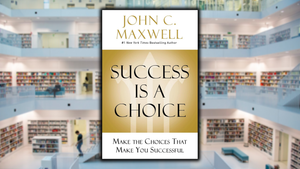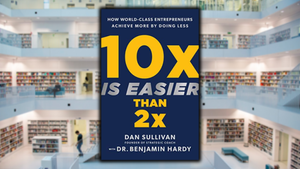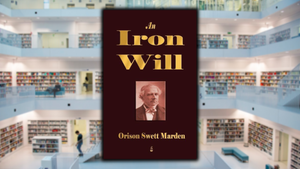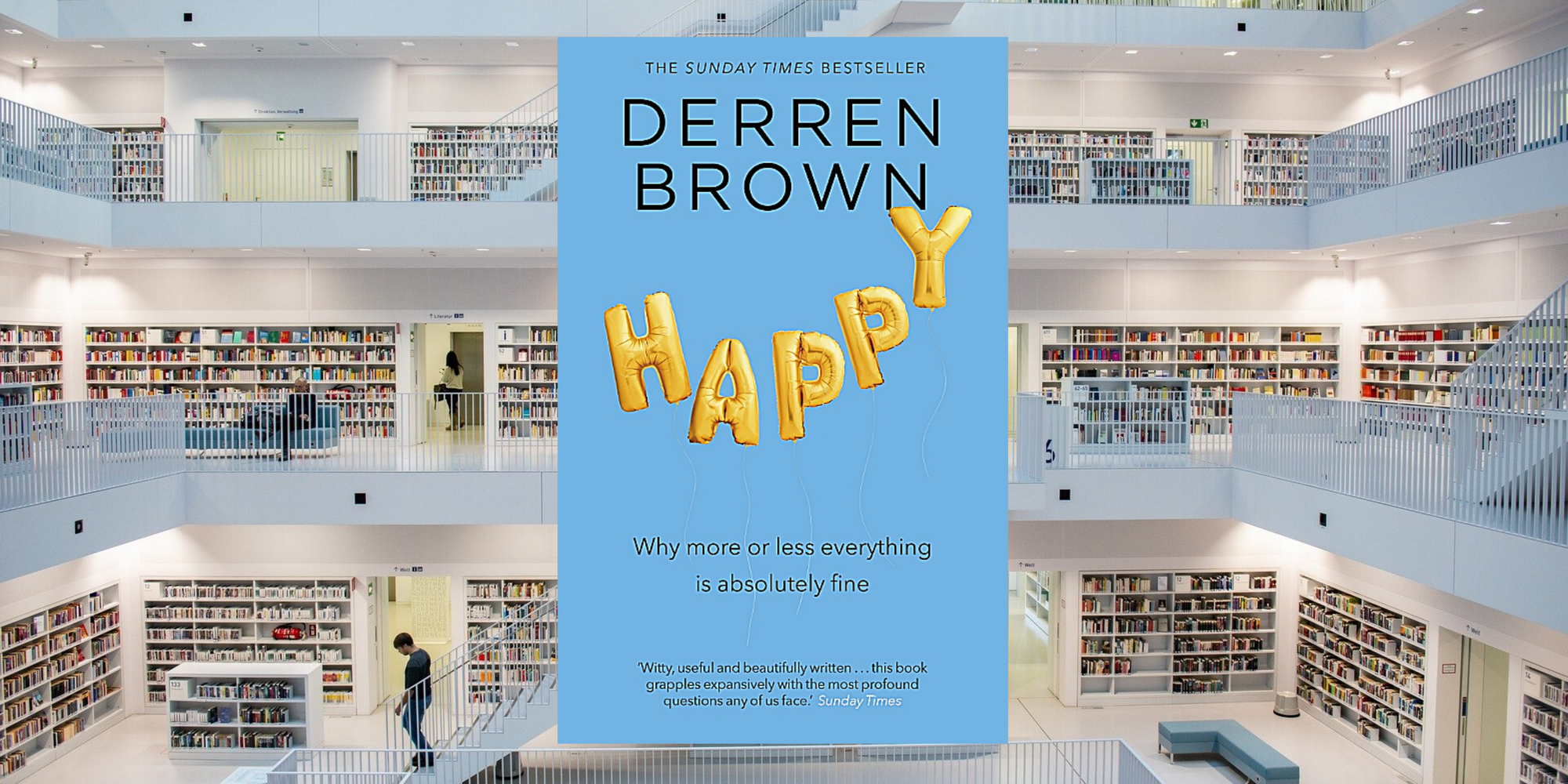
Summary:
If you had planned the greatest vacation you could possibly imagine, but you were informed that you would forget everything immediately upon your return, would you even go? Isn’t it the memories that we create in the process of living that make everything worthwhile? I mean, at the end of our lives, what do we have left?
In Happy, one of the best happiness books I’ve ever read, Derren Brown points out that the “experiencing” self is different from the “remembering” self, a psychological fact supported by research conducted by the Nobel Prize-winning psychologist Daniel Kahneman, Amos Tversky, and others. What this means is that we’d all be far better served by stuffing our lives with the very best memories possible, than trying to fit in as much temporary pleasure as we can. The pleasure will fade, but the happy memories will make us happy forever.
There’s just so much to this book, and it took me completely by surprise. It was digitally pushed into my hands by a friend who demanded that I read it at once, and, because this friend had never steered me wrong before, I looked past the fact that the book was written by a British mentalist I had never heard of, and I dived right in.
It didn’t take me long before I encountered passages that have stayed with me ever since. For instance, I now feel quite strongly the truth of the statement that under the same psychological conditions, we would behave much the same as anyone else. We can never step outside of our own psychological conditioning and find out what it’s like to be driven by the same internal forces as other people. I can’t somehow “renounce” my happy childhood and come to understand, viscerally, why someone who was abandoned by their father acted the way they did. Their motivations and psychological constitution are completely foreign to me.
This in itself has made me (slightly) more patient, more accommodating, and quicker to forgive. We are all still responsible for our actions, of course, but we are island universes, almost completely unknowable to others.
Also, Derren got me thinking more and more about how little we would actually require in order to live a good life if we weren’t so concerned about what other people thought of us! How much of what we spend and acquire is placed in the service of ensuring that other people’s attitudes towards us remain favorable? How much would our expenses and stress levels drop if we decided that our own favorable attitude towards ourselves were sufficient?
There’s a healthy dose of Stoic philosophy delivered within the pages of Happy, and if you’re familiar with this happiness-facilitating philosophy, you’ll know that it touches on all these issues and more. Stoicism has a lot to say about happiness, and it’s certainly informed this book in all sorts of ways. It’s everywhere in his thinking, and that’s a good thing. But Stoicism is about more than happiness. It’s a defense against all the threats to our happiness that abound.
On a personal level, the biggest looming threat to my happiness is the death of my parents. I’m not sure what the biggest threat to your happiness is, but it probably has something to do with love, in some shape or form. In my case, I think of how empty the universe will become for me on the day when both my parents leave me forever, and I don’t see how I could ever be happy again. No book will ever prepare you for that day.
The brand of Stoicism that Derren Brown elucidates in this book isn’t about hardening your heart against anticipated loss, but aligning with the nature of love to make that loss bearable. Just as Erich Fromm said that love was the only rational answer to the problem of human existence, Derren Brown says that a love that can only be received isn’t worth bothering about.
Life sucks. We lose everyone, and then, whether we ever make it back on our feet or not, death taps us on the shoulder and tells us we have to leave as well. But loss is not the end. It’s not over just because we lost someone. It’s in the nature of love that if we connect with them strongly enough when they are alive, we carry part of them with us, and it’ll be like they’re still here.
Happy will teach you how to perform these mental gymnastics, and with practice, this is how you’ll live your life. It’s also funny; I didn’t mean to get all depressing with the death stuff. This isn’t a “serious” book, and it definitely had me laughing in places. The subject matter is serious of course, but Derren Brown doesn’t take himself “seriously.” He’s sincere. Your “remembering” self will be glad you read this book.

Key Ideas:
#1: We think we know what exactly will make us happy in the future, but most of us haven't actually given it much thought, and many of our ideas probably need updating.
#2: The 'self' that remembers our experiences is different from the 'self' that experiences them at the time, which leads Derren Brown say, “When we look back over our lives and decide if we have had a happy time in this world, it is the 'remembering self' that is making that judgement." Therefore, we are better served to make sure that we have happier memories to look back on, rather than trying to fit as much temporary pleasure into our lives as we can.
#3: The number of our desires would diminish drastically if we didn't feel the need to impress other people. Almost everything we want is because it will make us look good in the eyes of others.
#4: You're never going to reach the point where you're "rich enough," or "famous enough," or "accomplished enough," unless you rigidly define what exactly success looks like to you. Pursue it to the end, but no further.
#5: “If I am hungry, I become irritable. I become snappy and joyless before I even realize that low blood sugar is the cause. A world that half an hour ago was populated by smiling, sexy and fascinating individuals is now full of people getting in my way."
#6: Under the same psychological conditions, we would behave pretty much the same as everyone else.
#7: Many of us go on vacations to distant lands, only to discover that, once we get there, unfortunately, we've brought ourselves with us. As they say, "wherever you go, there you are."
#8: “A love that can only be received isn’t worth bothering about.”
#9: Death is kind of like being tapped on the shoulder and being told that, although the party is still going on, you have to leave. This means that, ultimately, what we have isn’t ours. We have enjoyed our possessions and the company of our loved ones for a little while, and now we’ve returned them to eternity.
#10: “We resurrect our loved ones whenever we find ourselves thinking and feeling like them. We carry them with us, in that blueprint of how to think and feel that they have left behind. And the closer we are to them, the more we understand them, the more accurate that blueprint will be. It turns out, then, to be the positive connections between people that provide the mechanism for our 'self' to survive death in any meaningful way. It turns out to be love."

Book Notes:
Rainer Maria Rilke: “Things are not all as graspable and sayable as on the whole we are led to believe; most events are unsayable occurrences in a space that no word has ever penetrated."
“If we were unable to form meaningful patterns, our lives would become overwhelmed.”
“The greatest burden a child must bear is the unlived life of the parents.”
“I have just, uncomfortably and without joy, finished reading an extremely popular self-help book called The Secret, by Rhonda Byrne."
"Plan for success; prepare for failure.”
“I see no reason to decry financial success as long as we don’t confuse it with happiness.”
“Our desires would diminish drastically if we didn’t have to impress anyone.”
We choose whom to impress based on how impressive they seem to us, if we even choose at all.
“If we don’t think about happiness, we can easily throw ourselves into this perpetual default cycle, which feels more like an addiction to bursts of pleasure amidst a general tone of dissatisfaction and envy."
"When you travel, you always take yourself with you."
“I’ve never been anywhere that I haven’t been.”
“There is quite a marketplace of beliefs and philosophies to choose from, and it is hard to know which ones live up to their claims."
“Why should the anticipation of future introspective thoughts triggered by illness in the final few months of our lives dictate the choices we make now and for decades ahead? Is it not potentially just as disastrous to live one's life with the goal of dying happily and without regret, just to find that our regret is that we did not live for the moment while we could?"
“When we look back over our lives and decide if we have had a happy time in this world, it is the 'remembering self' that is making that judgment."
You wouldn’t go on a vacation where all your memories would be wiped away immediately afterwards, so the remembering self is very important.
“Fuck you” is too much about the “you.”
The idea of the Platonic Forms can help us realize which qualities we admire separately from the individual, that we aspire to ourselves, rather than worshiping someone else. It can also remind us that the person annoying us right now still has those qualities, even though we can’t see them now.
Excessive behaviors tend to be easier to exhibit than virtues.
“Original sin is a profoundly toxic picture; I cannot imagine a more damaging story for a culture to create for itself than the idea that every one of its members is inherently evil."
A lot of people who reject religion outright and refuse to believe that some objects are more 'sacred' than others, still wouldn't dream of damaging a photo of a loved one after that person has left them.
“He who lets the world, or his own portion of it, choose his plan of life for him, has no need of any other faculty than the ape-like one of imitation. He who chooses his plan for himself employs all his faculties. He must use observation to see, reasoning and judgment to foresee, activity to gather materials for decision, discrimination to decide, and when he has decided, firmness and self-control to hold to his deliberate decision."
“It is not by wearing down into uniformity all that is individual in themselves, but by cultivating it, and calling it forth, within the limits imposed by the rights and interests of others, that human beings become a noble and beautiful object of contemplation."
“We should look to developing and strengthening those parts of us that feel unique, not as an aggressive stance against society but with the warm glow of knowing that we can contribute more to it as a distinct, idiosyncratic individual. And therefore, ultimately, be of more use to the world."
“Would we really want to be in a relationship where the other person reminds us every day of ourselves? Do we even especially LIKE people who are very much like us?”
Many philosophers claim to be completely breaking from the past and going in a totally new direction, yet their ideas gain force by pushing against those ideas which they explicitly reject while claiming to be separate and undefined by them.
Marxism was a religion as well, to the extent that it offered a promise of a far-off utopia that was reachable only through suffering.
“Why should the business of the firm you visit every day between certain hours be of any relevance when you are hoping to make an interesting personal connection with someone at a party?”
What counts is not the work we do, but our relationship to it.
Learn to desire what you already have, and you will have all you need.
Through death or choice, your closest relationships will end.
“The stoic does not fight fate but quietly separates his business from hers.”
“More or less everything is completely fine.”
Seneca: “No one confines his unhappiness to the present.”
There’s nothing more conducive to happiness than another human being, and nothing more destructive than anger.
Our open displays of anger completely distract from any point that we may have been trying to make.
In the same code in which “an eye for an eye” appears, there’s an article which says that anyone who makes a hole in someone’s house should be put to death in front of that hole and then “thrust therein.”
“If I am hungry, I become irritable. I become snappy and joyless before I even realize that low blood sugar is the cause. A world that half an hour ago was populated by smiling, sexy and fascinating individuals is now full of people getting in my way."
“Given the importance we tend to ascribe to how we come across to other people, it is astonishing that we are so hostile to feedback.”
“There is surely no more direct route to self-deception than the avoidance of feedback.”
When you feel angry or otherwise frustrated, imagine a friend with you, and think about how they would coolly handle it or how you might make them feel better.
To whom are we drawn more strongly - the one who lets us know how fascinating he is, or the person who lets us know how fascinating we are?
We measure so many different things and make sure they’re all correct, but we rarely do this with our own judgments.
You have the same faults as those who annoy you.
We can hardly blame others for acting in the same way that we would ourselves.
Many times, we blame people for doing something that we would blame them for not doing.
Under the same psychological conditions, we would behave almost exactly how other people behave. Other people are just as complex as we are.
Anger is just proof of how unrealistic your expectations were.
That dream vacation seems less appealing once we realize we’ve brought ourselves with us.
You’re very unlikely to reach the point of “I’m famous enough” or “I’m rich enough.”
“A love that can only be received isn’t worth bothering about.”
“What terrifies most about death is not the loss of the future but the loss of the past.”
Death is kind of like being tapped on the shoulder and told that although the party is still going on, you have to leave.
What we have isn’t ours. We have enjoyed them for a while and now we’ve returned them to eternity.
“The needs of a present that has a future are different from one that does not.”
If humanity was due to be wiped out thirty days after our death, most of our long-term projects would seem pointless.
“We resurrect our loved ones whenever we find ourselves thinking and feeling like them. We carry them with us, in that blueprint of how to think and feel that they have left behind. And the closer we are to them, the more we understand them, the more accurate that blueprint will be. It turns out, then, to be the positive connections between people that provide the mechanism for our 'self' to survive death in any meaningful way. It turns out to be love."

Action Steps:
So you've finished reading the book. What do you do now?
#1: Eat breakfast.
Hunger changes people. I know, because I am zero fun to be around when my blood sugar drops and I start seeing red. Hand me a sandwich though? What murderous rage?! I was this gentle and warm and kind all along, wasn’t I? It’s like I’m a different person.
This goes way beyond breakfast, but, take care of yourself. Regulate your mood by improving your sleep, managing your stress, and always making sure you start the day with a full stomach. It’s crazy how much of a difference this makes to our happiness.
#2: Plan to create memories.
It doesn’t matter whether you’re just planning a vacation, or planning the rest of your life: plan on creating memories, rather than just “consuming a bunch of stuff.” You won’t remember getting drunk on a beach for a week, but you’ll remember swimming with sharks, taking a road trip through the most beautiful mountains you can find, or hiking the jungle with 40 of your closest friends.
If your days all look the same, your days will blend together, and it will seem as though your life is going faster, with nothing to make it worth looking back on. Don’t let this happen to you!
#3: List your desires.
How much of what you want comes from you, and how much of it comes from the desire to impress other people and make them think more highly of you? Nobody likes to admit that they care what other people think, but we all do, at least a little bit.
And you should care what some people think of you, and to some extent. Otherwise, we’d just be rude and obnoxious to everyone. But odds are, you can eliminate a ton of shit from your life that never really contributed to your base happiness and that you won’t even miss anyway. So list your desires, see how many of them are inspired by others, and drop as many of them as you can.
#4: Ask bigger questions.
It blows my mind how many people neglect to ask the big questions. Off the top of my head, you can ask things like, “What is the highest good of which I am capable?” “What would the opposite of my life look like?” “How far can I move my life ahead in one year?” “What am I willing to sacrifice in order to get what I really want out of life?”
If you ask small questions, you’re going to end up with a small life. You can ask yourself which bar you want to get obliterated drunk at this weekend, or you can ask what is the single most important thing you could be doing with your one and only life. The quality of your questions determines the quality of your life.
#5: Bring a friend with you.
Wherever you are, “bring a friend with you,” either in your mind, or bring along an actual person who is going to witness your behavior. If you know that someone you care about - and whom you don’t want to have disappointed in you - is going to be following you around for the day, you’re going to make better decisions.
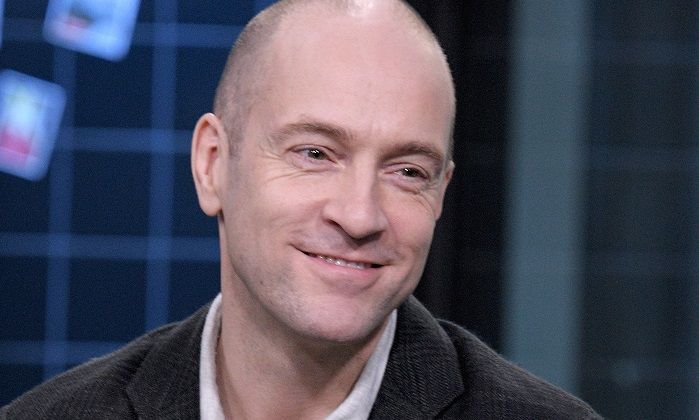
About the Author:
Derren Brown is an English mentalist, illusionist, painter, and author. Since his television debut with Derren Brown: Mind Control in 2000, Brown has produced several other shows for the stage and television in both series and specials. His 2006 stage show Something Wicked This Way Comes and his 2012 show Svengali won him two Laurence Olivier Awards for Best Entertainment. He made his Broadway debut with his 2019 stage show Secret. He has also written books for magicians as well as the general public.
Additional Resources:
This Book on Amazon:
If You Liked This Book:
Meditations, by Marcus Aurelius
Anger and Forgiveness, by Martha Nussbaum


